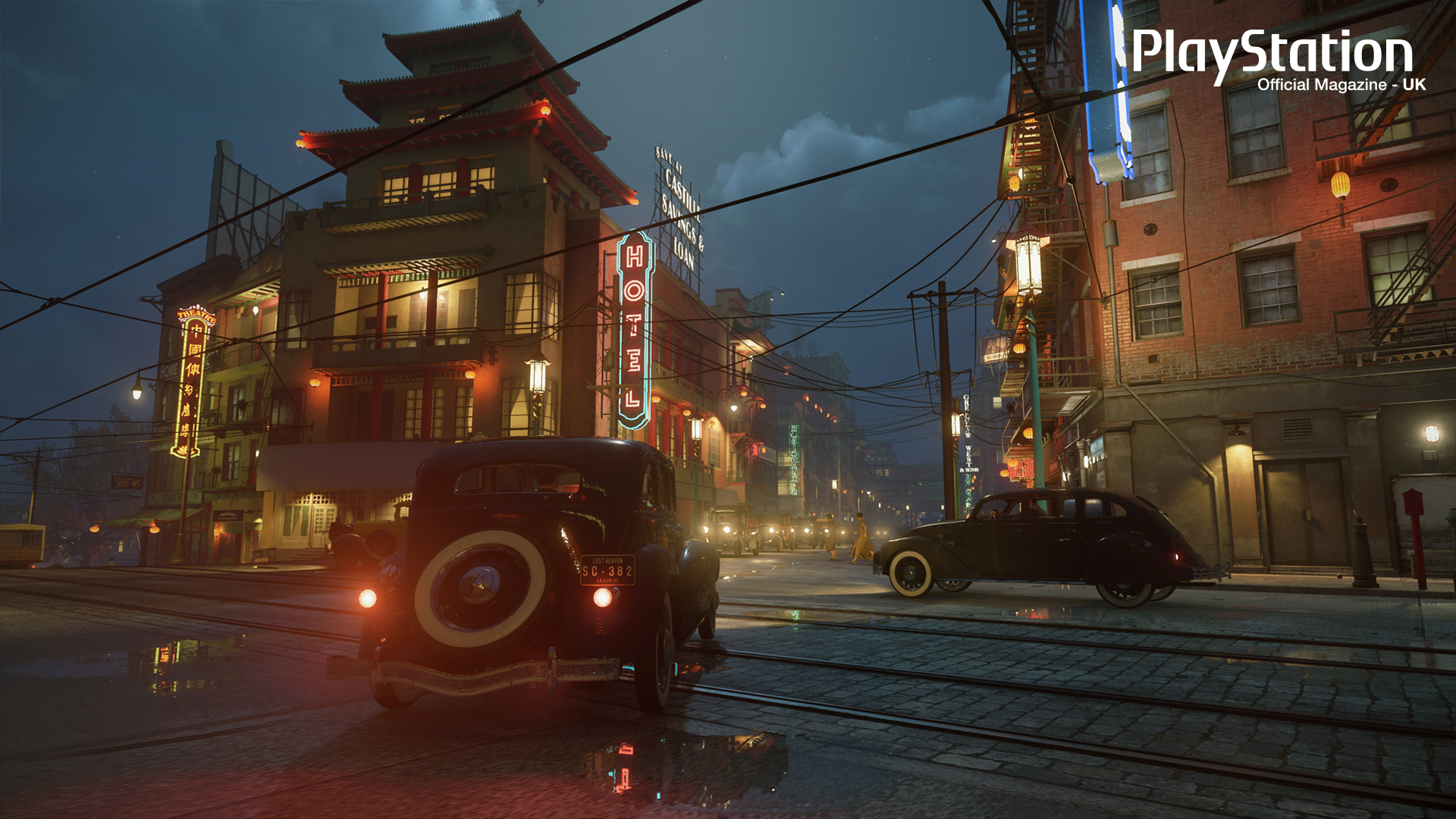
The original Mafia was developed in tandem with Grand Theft Auto 3, at a time when open world games weren't prolific. There were no established rules to follow, and just as Rockstar North set about reinventing how we play games so too did Hangar 13, but with a focus unique to this team. With Mafia, the aim was to tell a cinematic story within a large open city, with the player free to explore but never distracted by a GTA-style sandbox. This was a game that wanted to steer you down its own bloody paths.
"It set a new standard for cinematic storytelling at the time. It made quite a statement about the kinds of stories that can be told in games," says Alex Cox, game director at Hangar 13. The 1930s prohibition-era city was a backdrop to an engaging filmic flow as we followed the rise and fall of Thomas 'Tommy' Angelo from taxi driver to mobster. The open world setting was "an advanced roleplaying feature," says Cox.
The freedom to explore enabled us to feel like we were living in the moment. It led to some unusual design choices – for example, there was no minimap (you needed to hold a map and drive). "You have to look around and learn the city [...] you as the player weren't given much assistance," says Cox. Revisiting the original "was a really interesting journey back into a different era of gaming and put into perspective how some of those things have changed."
The gamefather
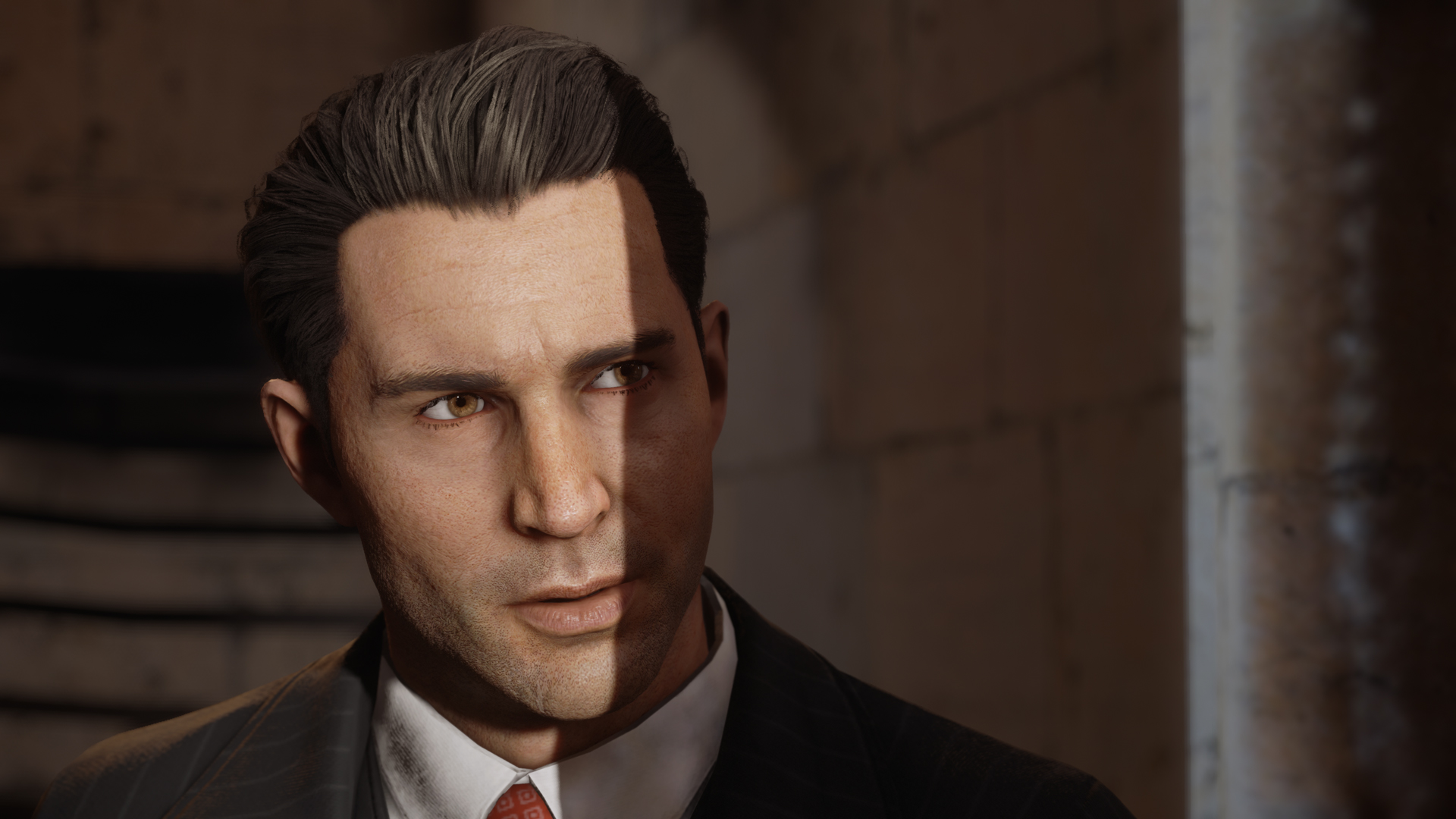

“Bad games don’t go to the Baftas”: Looking back at the highs and lows of Mafia 3 with Hangar 13
This ground-up remake, from many of the original Mafia team, isn't altering the classic formula. The goal is still to scratch beneath the surface of the American Dream and offer some of the sharpest third-person shooting on PlayStation. But taking inspiration from the remake of Resident Evil 2, the developer is refining, adding to, and enhancing the original game and its systems.
As we chat to Cox he describes how everything was on the whiteboard at one time, including making protagonist Tommy's girlfriend Maggie a playable character. "To see the story from a different perspective," he qualifies. The team even considered using this remake to introduce co-op and multiplayer. But anything that threatened the core experience of the game, or could derail returning fans' enjoyment, was left behind, and this includes online modes. "There's no multiplayer," confirms Cox.
"What we want to do is rejuvenate the game, make it relevant to modern players, but keep the spirit of the original. We have made changes, it's not a one-to-one copy of the original game," explains Cox, revealing new collectibles, for example, will be in the remake. "Anything which we could add in to expand the game outside of the regular design [has been done]. We've done everything we can to embellish, enlarge, and enhance [the game]."
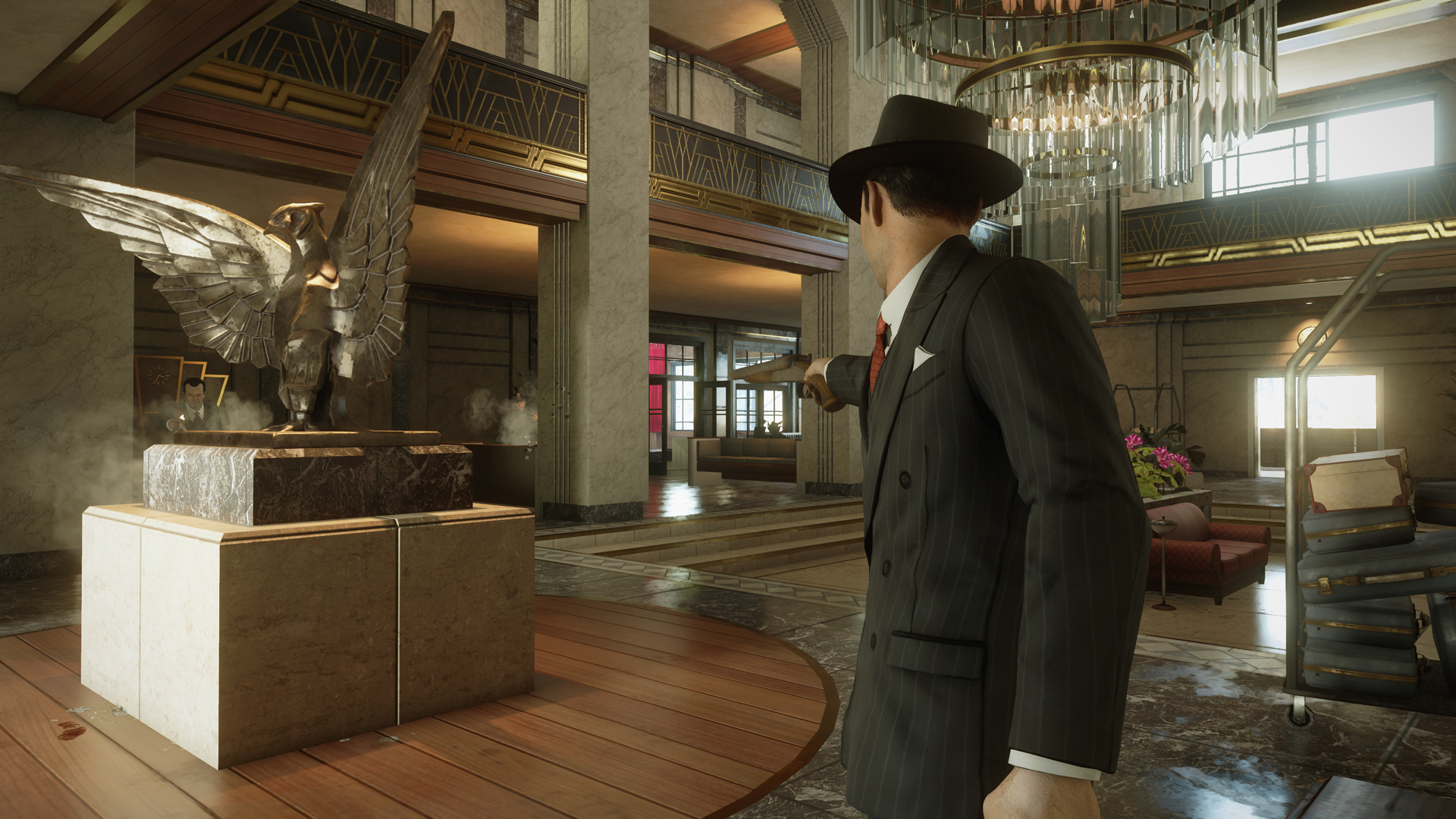
An example offered by Cox is the moments when we drive between missions. In the original game these were, ironically given the 1930s setting, completely silent. The banter we expect, a standard feature of open-world storytelling, a sophistication of modern gaming, wasn't in the original Mafia, but it is now. "So we've enhanced the story, we've added new experiences that weren't there before."
Weekly digests, tales from the communities you love, and more
This attention to detail, and adding new context to events, stretches into missions which are being refreshed to include visual and gameplay refinements and new pacing. An early mission where you need to walk Tommy's girlfriend home safely has a new melee fighting system. The route you take has been embellished with incidental events happening around the characters to bring the world to life. "Fundamentally, it's the same mission. You escort her home, you get accosted by some thugs, you have a cinematic melee encounter with them, and she takes you home to tend to Angelo's wounds," says Cox.
Likewise the shooting mechanics are being completely overhauled, meaning there's no noughties squatting and crabbing behind cover. As Cox explains, Mafia: Definitive Edition offers an "evolution of the systems used in Mafia 3 – it's a cover shooter and it's got significantly cinematic experiences to shoot through."
Re-made man
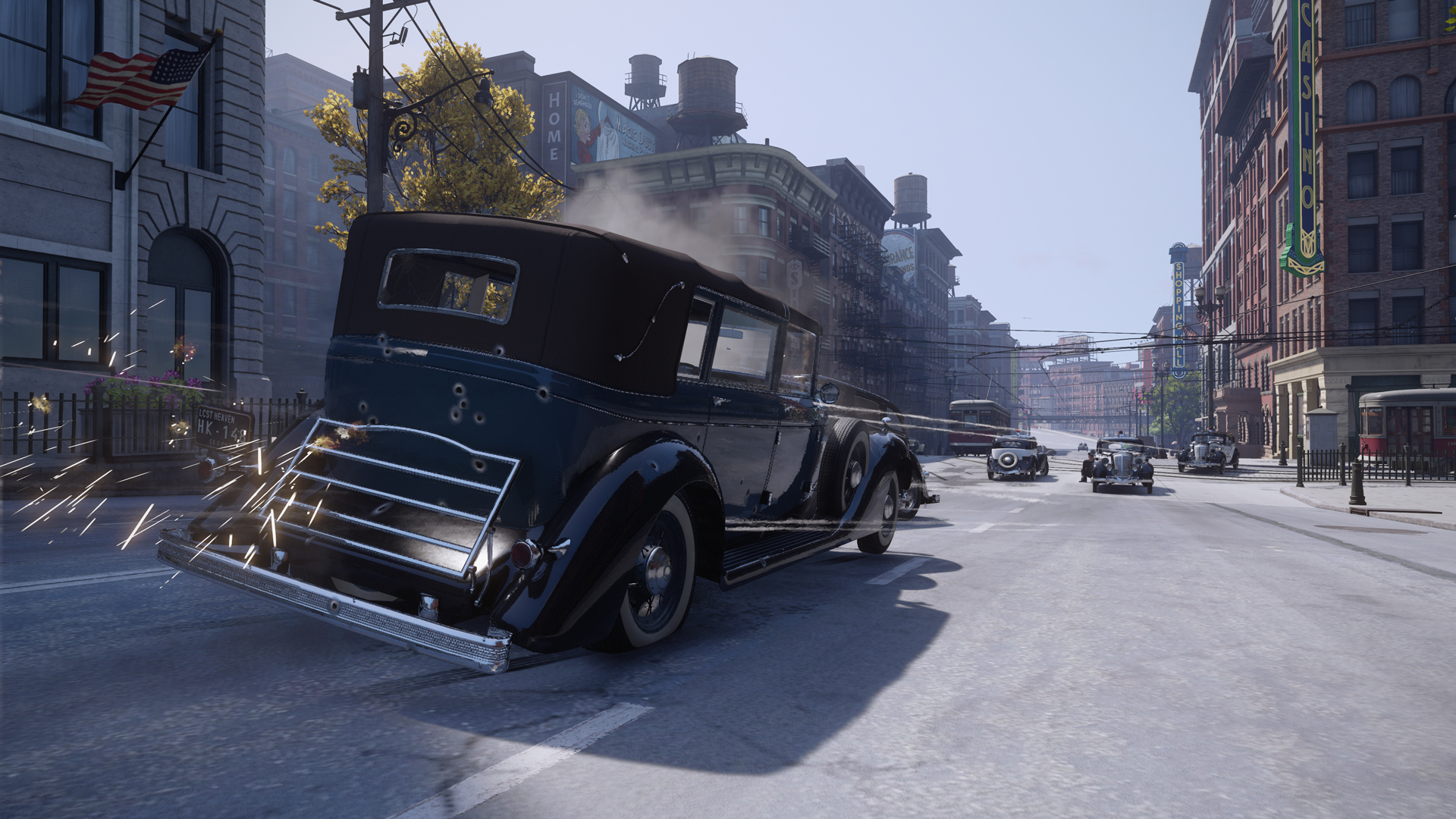
Comical shooting aside, the original Mafia was a technical marvel when it released in 2002. The physics and car handling in particular felt realistic, ensuring some cars such as the Ford Model T were snail-like but others speedier, and heavy cars hitting lighter vehicles would do more damage. It's a part of Mafia's history Cox is proud of.
"The driving system in Mafia is one of the features that has carried through. It has been reworked and it's been iterated on in Mafia 2 and Mafia 3, but fundamentally, I mean it's not like it's the same code, it has been reworked because we're using a different engine now, but it's similar developers, similar philosophy, similar outcome – so we've still got quite a realistic driving model."
There are options to tweak the driving handling, so you can play with the default, accessible, arcade-style handling or embrace the simulation mode and choose to have manual gear shifting, fuel economy, and various other realistic settings. Such simulation extends to the cars; we remember the Model T being slow and you don't want to go near a hill in this classic. Cox reveals the narrative's Golden Path always gives you good cars to drive, but in the heat of a chase you may need to find alternate wheels, and knowing the world and its vehicles, hijacking the wrong getaway vehicle can lead to comical failure.
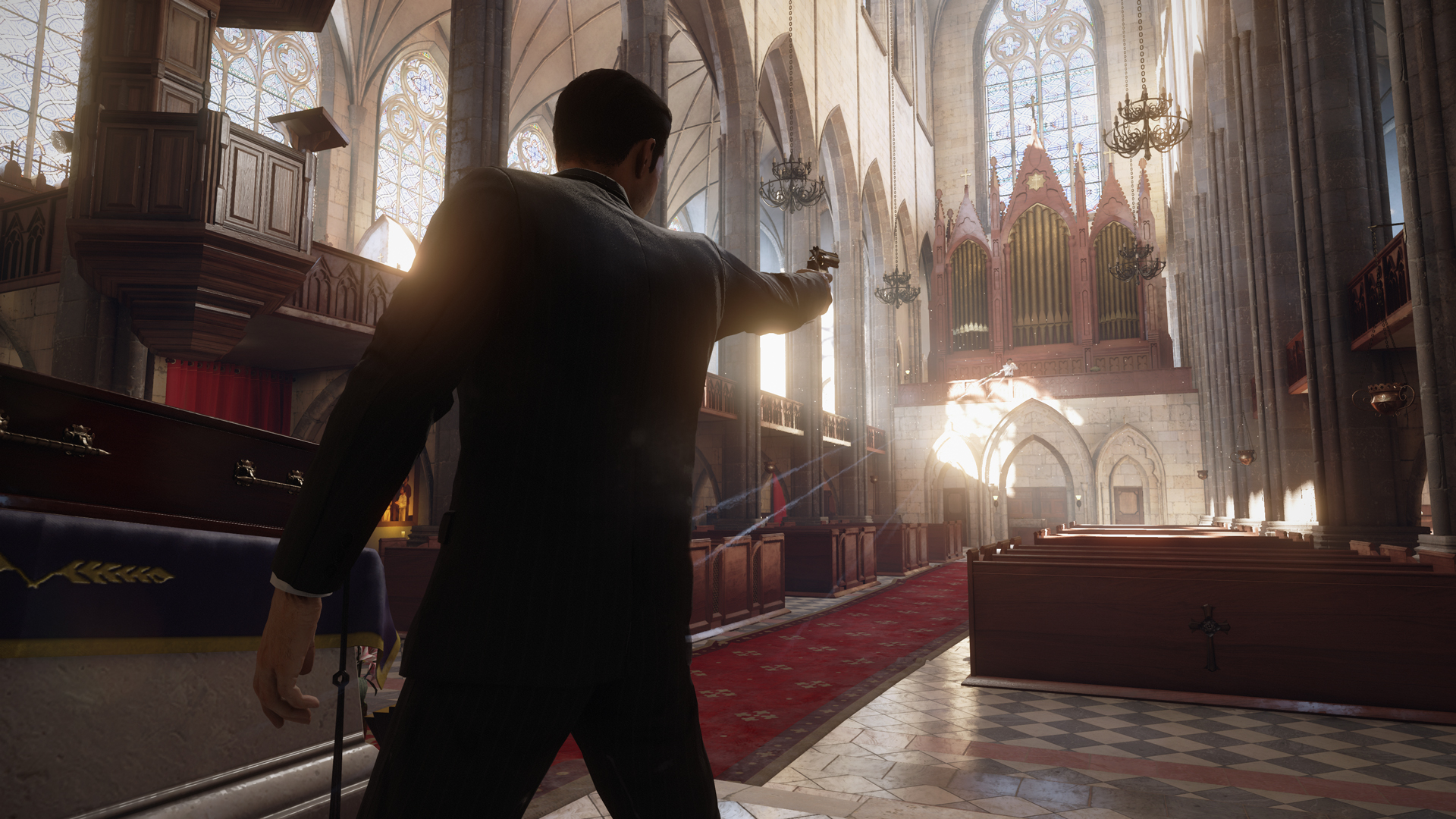
"We've expanded the list slightly in some areas, we've taken some of those original models and updated them," explains Cox. "We've added a few more where we feel that there's some reason to add some extra variety or interests or extra utility vehicles. We've added new vehicle types; you drive motorcycles now which were not in the original game [...] That's actually new to the franchise."
The addition of motorbikes isn't just a fun gimmick, it taps into the developer's desire to enhance the original experience. One of the Resident Evil 2-scale changes Cox shares is that in one mission the original car has been replaced with a motorbike, and Tommy must speed through the city in hot pursuit of a rival mobster.
Cox says: "It's an example of how we've tweaked the content to include some new mechanics. It's the same story intro, the same story outro, but the gameplay in the middle is that you're chasing the guy on a motorcycle; guys are shooting Tommy guns out of the back window [of the rival car] and you're having to dodge around to avoid the bullets. The whole thing is just an entirely different experience."
Likewise Mission 5's notoriously difficult grand prix race event has been reworked to be more playable, but to also ooze 1930s glamour and spectacle. "Our target for this was the pod racer scene from Star Wars: Episode I, to try and make you feel like you're at a 1930s race event," says Cox.
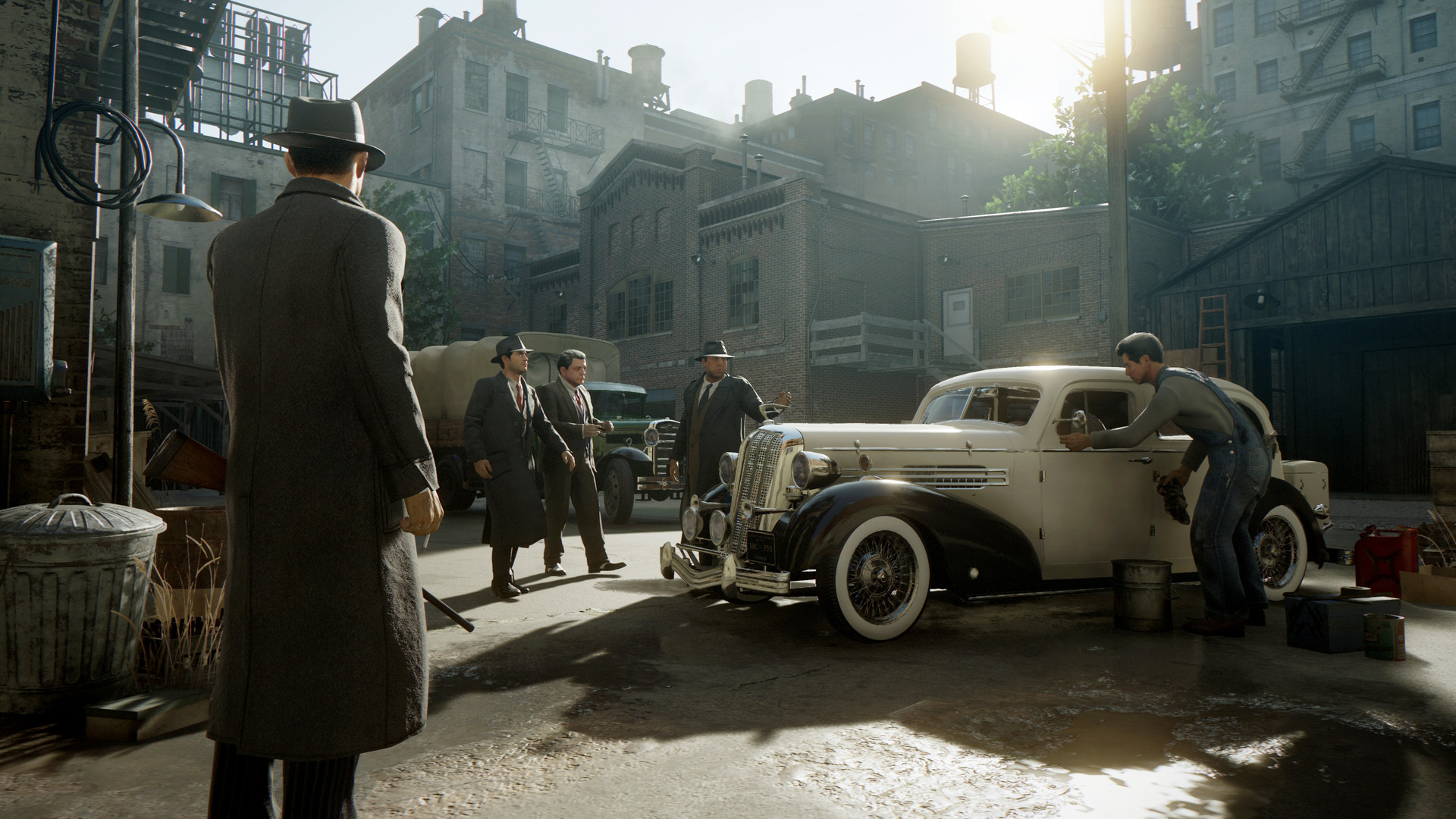
That desire to craft a new more believable world that can help tell Mafia's story is one of the main new changes Hangar 13 is proud of achieving. The game spans eight years, beginning during Prohibition in the early 1930s and ending in 1938 with the threat of World War 2 hanging over the city. Each mission has been embellished and tailored to depict the events of the narrative in more thoughtful ways. This, says Cox, has meant changing the time of day a mission is set, using new weather effects to build an emotional resonance to what's happening on screen, and using newly recorded dialogue to create a patchwork of audio atmosphere to enhance the visuals.
Cox explains: "Most of the missions in the original Mafia begin and end at the Salieri bar hideout. In the original it was pretty much the same every time you went there. So now we evolve it over the course of time. You feel that time is moving forward, you can interact with the other story characters, they're commenting on the meta stories, you're hearing little anecdotes and seeing moments of the gang's life."
We can talk and interact with these characters now, and they'll comment on events in the world and the story. We can hear about their lives and it all aids the idea that this is a living place and we're roleplaying the life of a gangster.
Bases loaded

"We've based the city on the original and it has revealed a whole new vista on the game's world that no one has ever seen before."
Alex Cox, game director
Reflecting on Tommy's girlfriend, Cox reveals how this character has been fleshed out in a similar way in Mafia: Definitive Edition. She's an undeveloped character in the original, despite being a motivation for many of the things you do, so the team now wants to give their relationship more weight.
"We see her interacting with Tommy more," reflects Cox. "We see their romances, how they cross paths and they're flirtatious interactions [...] She is much more frequently in the game and you're aware of the character the way you weren't in the original game. You get more insight into that character and actually, hopefully, as a player, you're going to feel more strongly about her and you're going to understand Tommy's motivations."
Every mission has got a distinctive look and feel "much more so than in the original," says Cox, as he explains how one mission set around a baseball game has been reworked to include more atmosphere and narrative details. "The mission is made distinctive because everybody's talking about the big game and you're hearing it on the radio and it's in the incidental detail in the background. You're picking up newspapers and reading about it. These are all things that weren't in the original; this expanded narrative design. These are areas where we expand the story without changing it."
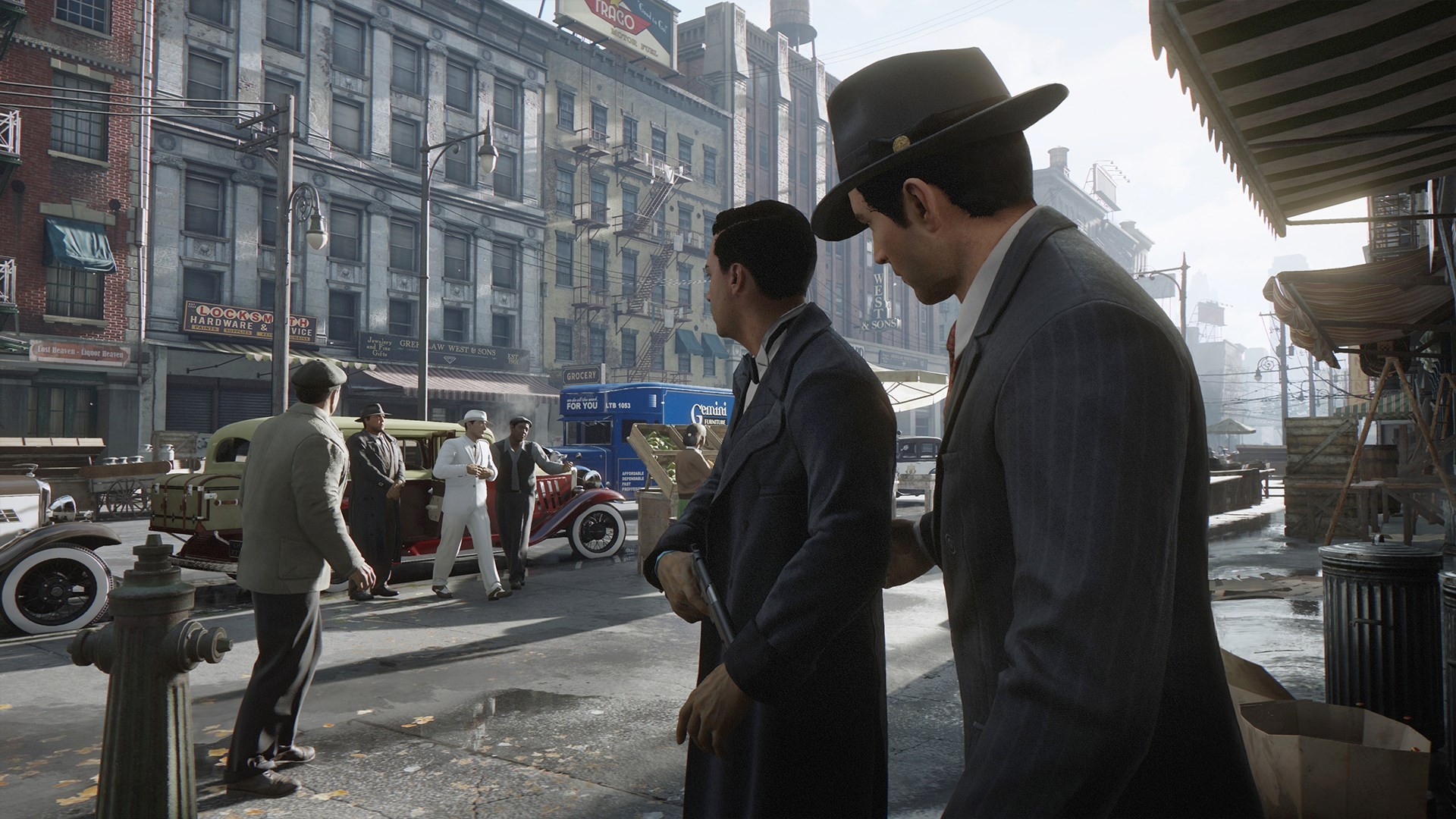
We've been discussing planned changes, but remaking Mafia in a new game engine on PS4 (and, yes, PS4 Pro will receive enhanced features) has resulted in some accidental wonders. Cox explains how the original game suffered from fogging to hide the draw distance, which even on a PC in 2002 felt like the world was kept at a social distance, but on PS4 that's been jettisoned.
The city of Lost Heaven has never looked like it does now – for one thing you can actually see all of it from afar. "We've based the city on the original and it has revealed a whole new vista on the game's world that no one has ever seen before. I'm driving over this bridge and I'm seeing a skyline I never knew existed, because you just couldn't see it," laughs Cox.
The upshot is the new engine grants Mafia's cinematic spectacle a new lease of life. When we ask which missions Cox is particularly fond of, he mentions A Trip To The Country, in which Tommy and his gang head to a barn outside of the city in the middle of the night for a whisky deal. It's pure prohibition gangster fantasy. It's The Untouchables and Miller's Crossing; everyone's dressed in trench coats on a stormy night.
"It has a horror-movie vibe, [Tommy] is looking for his injured friends lost in this deserted, ramshackle farm and enemies are popping out from the windows above you and around you," says Cox. "We've recreated this mission in a way that I think, again, is taking it to a new level in terms of presentation quality, but it's still kept that very memorable vibe, you know. Sneaking around this farm with lightning striking and the storm swirling, it's super, super-cool."
Stay up to date with all of the latest releases with our upcoming games 2020 list, or watch the video below for our latest episode of Dialogue Options.

Imagine FX and Creative Bloq editor Ian Dean is an expert on all things digital arts. Formerly the editor of Official PlayStation Magazine, PLAY Magazine, 3D World, XMB, X360, and PlayStation World, he’s no stranger to gaming, either. He’ll happily debate you for hours over the virtues of Days Gone, then settle the argument on the pitch over a game of PES (pausing frequently while he cooks a roast dinner in the background). Just don’t call it eFootball, or it might bring tears to his eyes for the ISS glory days on PS1.



